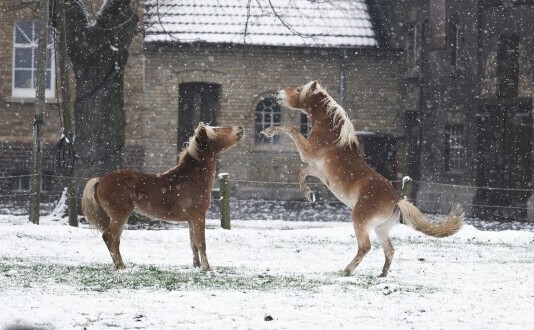
Horses view the world quite differently from humans, and their perception is influenced by their status as prey animals. This means they are hardwired to be alert, aware of their surroundings, and ready to respond to threats. Understanding how horses perceive their environment is crucial in shaping effective training routines.
In the wild, horses thrive on social structures within herds. Each member has a role, and the social dynamics can have a massive impact on their behavior. Recognizing these natural herd behaviors allows trainers to address horses in a way that acknowledges their social needs, promoting more harmonious interactions.
Instincts and natural behaviors play a critical role in how horses learn and react. By tapping into these instincts during training sessions, trainers can create conditions that feel more natural and less intimidating for the horse. This facilitates smoother learning and establishes a foundation of trust and confidence.
Grasping these psychological elements can transform training from merely a functional task to an enriching experience for both the trainer and the horse. It’s all about building an understanding of the equine mindset, which is key to unlocking their full potential with minimal stress and maximum cooperation.
Building a Connection Through Empathy and Observation

Horses, just like humans, have their own unique personalities. Some are playful and curious, while others might be shy or cautious. Recognizing and respecting these individual traits is where the journey to understanding begins. When you observe your horse closely, you start to see what makes them tick and how they communicate their thoughts and feelings.
A big part of communication with horses involves reading their body language and other non-verbal cues. Horses speak volumes with the flick of an ear or the swish of a tail. Paying attention to these silent signals helps you gauge their emotional state and anticipate their reactions.
Building trust and mutual respect is key. Horses respond positively to trainers who show patience, empathy, and consistency. By approaching them with a mindset that values these qualities, you’re setting the stage for a strong and enduring partnership.
Through empathy and observation, you create an environment where the horse feels understood and respected. It’s about forming a true connection that goes beyond basic commands, fostering a training experience that enriches the lives of both the horse and the trainer.
Incorporating Psychological Insights into Training Practices

When it comes to training your horse, clear communication is key. Horses don’t naturally understand our language, so it’s up to us to bridge that gap with consistent cues and signals. This helps in establishing a reliable way for your horse to comprehend what is being asked.
Behavioral challenges often stem from psychological roots. Whether it’s refusal to enter certain areas or fright at unfamiliar objects, understanding these behaviors can be half the battle. By considering the psychological basis of these issues, you can devise strategies that address the underlying causes rather than just the symptoms.
Designing a training program that aligns with the natural tendencies of horses leads to higher success rates. Techniques that resonate with their instincts and social behaviors make the learning process smoother and more enjoyable for both horse and trainer. This includes adapting your training style to engage their curiosity and playfulness, or accounting for their flight instincts when introducing new experiences.
Incorporating these insights ensures that training efforts translate into more effective, respectful, and insightful interactions with your horse. It’s about crafting a program that not only reaches training goals but also respects the psychological well-being of the horse.
Optimizing Performance and Well-being Through Understanding

Understanding stress-related behaviors can help in preventing issues before they escalate. By recognizing early signs of stress, such as changes in eating habits or a shift in social interactions, you can take proactive measures to address potential problems.
Balancing physical performance expectations with the psychological welfare of the horse ensures a healthier training process. Pushing too hard without considering the mental strain can lead to burnout or injury, whereas aligning goals with their natural capacities promotes a positive experience.
Positive reinforcement plays a key role in enhancing performance. Rewarding desired behaviors makes learning more rewarding for the horse and strengthens the bond between horse and trainer. It creates an environment where the horse feels motivated and eager to participate.
By integrating psychological understanding into training regimes, you not only optimize performance but also enhance the horse’s overall well-being. This approach fosters a more harmonious and productive partnership, where both horse and human truly thrive.

